Ellis Marsalis, Fire Patriarch
Ellis Marsalis, el patriarca del fuego
David Dorantes
In New Orleans, jazz is on Frenchmen Street. The famous Bourbon Street is now only for tourists.
On a frosty Monday in January 2015 an old man stands on the sidewalk outside the Snug Harbor club. It is beginning to get dark. It seems fun to watch the wave of young people come and go from jazz and swing bars. Snug Harbor is something else. It is the club where only the Big Leaguers of local jazz or where those who pass through the city play. The first thing that attracts attention to that man is the neatness of his outfit. A gray suit, white shirt, and blue tie. Black shoes. A blue scarf matching the tie covers his neck and rises almost to his lips. His hands protected from the cold with black leather gloves. The perfectly trimmed mustache in actor Clark Gable’s style. None of the boys crowding Frenchmen Street, under a slight bump from the Mississippi River, seem to recognize the master pianist. Ellis Marsalis just looks at them. He smiles like a generous patriarch.
Ellis Marsalis, 85, died on the afternoon of Wednesday, March 1, 2020 in New Orleans. He was hospitalized for pneumonia, a complication of the fearsome Covid19. He was the father of a brood of six children. Four of which are also pillars of jazz: Wynton Marsalis (trumpet), Branford Marsalis (saxophone), Delfeayo Marsalis (trombone), Jason Marsalis (drums) as well as the poet Ellis Marsalis III and the only woman Mboya Marsalis, unrelated to music or art.
For 30 years Patriarch Marsalis played weekly, without even missing once, at Snug Harbor. Three decades in which jazz fans from all over the world crowded the small club. A 19th century grocery store with capacity for 100 people. To see the old master was to witness the history of jazz itself as a bonfire on the piano that burned in the heart of the city where that genre was born. His art was an encyclopedic flame of fire since the patriarch literally passed through all the variants of the genre throughout his life and recorded it at every concert.
Marsalis is a surname associated with pioneers in the southern United States. Ellis Marsalis’s father was one of the first African Americans to own his business in New Orleans, a gas station. When little Ellis was born on Wednesday, November 14, 1934, he told his parents that he wanted to learn music so they enrolled him in the Xavier Junior School of Music as a clarinetist. He started learning piano on his own. However, he was expelled from school because he accompanied the violinist Edward Frank in a jazz session. Students were prohibited to play that genre. For years he debated between the piano and melodic wind instruments such as saxophone and clarinet. In the mid-1950s, when he was a student at Dillard University, he chose the piano.
When he graduated, he left Louisiana and moved to Los Angeles, California, to accompany the legendary Ornette Coleman (saxophone) on the piano. But then, crushed by economic anguish, he joined the United States Navy where he was the pianist of The Corp Four military quartet, which functioned as a musical ambassador and entertainment act for the troops. At the end of his required period in the armed forces, he returned to New Orleans. Since then, and almost without leaving his birth city, he forged his fame and legend.
Marsalis began the early 1960s as a bar pianist at the Playboy Club, at 727 Iberville Street, since it opened on October 13, 1961 playing jazz, ballads, and blues among bunnies and hunters night after night. By day he was a music teacher for economically disadvantaged children and teens at the New Orleans Center for the Creative Arts.
In addition, on the nights he was free of the bunny hunting ground, he played at his father’s hotel bar at the Marsalis Mansion Motel, 110 Shrewbury Road, where African-American celebrities of the time were staying, such as Martin Luther King Jr. and Ray Charles.
Playing in small bars and teaching were the two transversal axes that marked the life of Marsalis without leaving old New Orleans. Thanks to this professional development, the patriarch concentrated on teaching the secrets of jazz to new generations and, of course, his most prominent students were his four musical sons. Its giant grandeur was carved out of the simplicity of the artist devoted to his trade as a serene goldsmith teaching from his workshop to polish the diamond.
When Brandford and Wynton became famous, within the litter of the Young Lions that took the jazz of the United States by storm in the 80s, the world turned to see the father of both, who already reeled in a thousand musical languages every night from the stage on Snug Harbor.
At Snug Harbor Marsalis covered the entire performance range from soloist, duet, trio, quintet, quartet and even Bing-Band. Every night the patriarch lit the flame of his torch to pass it to the boys. The list of musicians who grew up under his tutelage on those nights on Frenchmen Street would be enough to fill a library.
Marsalis condensed in his style an almost perfect academicism with the techniques of a classical music pianist but brought to the lyrical style of Jelly Roll Morton, his great predecessor on the New Orleans piano, drinking in a unique style that concatenates blues, ragtime, swing, ballads, gospel. With that baggage he was a marvelous soloist capable of going from the beautiful subtleties in his leisurely playing to motley wastes of boogie speed without losing precision. When another instrument took the melodic lead in improvisation, Marsalis discreetly harmonized in rhythmic base support games in the manner of Earl Hines or Wynton Kelly, the latter of which one of his son’s was named after.
It is no coincidence that one of the first and most significant albums on Ellis Marsalis’s discography, when the world turned to see him, is precisely A Nigt At Snug Harbor (Evidence Records, 1989) with a staff of young musicians who are dizzy for their masters like Tony Dagradi, Rick Margitza, Donald Harrison (saxophones), Bill Huntington (bass), David Lee Jr. (drums) and then-teenager Nicholas Payton (trumpet). An electrifying 68-minute, 77-second shock of intense hard-bop with references to virtually the entire history of jazz and winks to Africa passing through the West Indies. With the pianist as the great captain of that ship with the sails open and with his vibrant version of A Night in Tunisia as a full closing of emotion and wisdom.
The wave of youngsters continues to run in the drizzle that begins to rise from gray clouds that seem to overflow against the old red brick buildings. Someone approaches the pianist and in a hasty and flat English he babbles something like I’m from Mexico and I came to see him play. Ellis Marsalis turns around smiling. “Mexico?” he asks and quickly says “Thanks for coming!” like a jubilant boy who receives his friends at his birthday party. It looks like he is going to say something else but suddenly Bill Huntington, his head bassist for years, appears on the street, his coat collar covering himself from the rain. “All good?” Marsalis asks his musician who nods and replies “Yes, thanks, I’ll tell you later”. Both enter the premises.
Ellis Marsalis goes up to the left side of the stage and sits at the piano. He opens with his quiet version of Emily, an old ballad, and then during the solo, looks across the audience that looks at him back with devotion. He fixes his gaze for a second on the stranger with whom he crossed two words in the street with and, as if nothing, he quotes the melody of Bésame mucho just a few seconds. Then he turns to his keys again, moving away from the world.
In one of the behind tables, the stranger is choked up with a lump in his throat by the musical wink that the pianist had just thrown at him. A long drink from Abita Amber brings his posture back. Meanwhile the Fire Patriarch lights another ballad, Come Rain or Come Shine. Out there the fast-paced rain that already rises from the Mississippi accompanies his blues.
En Nueva Orleans el jazz está en la Frenchmen Street. A la Bourbon Street ya sólo van los turistas despistados.
Una gélido lunes de enero de 2015 un hombre mayor está parado sobre la banqueta afuera del club Snug Harbour. Comienza a anochecer. Parece divertido al ver a la ola de jóvenes que van y vienen de los bares de jazz y swing. El Snug Harbour es otra cosa. Es el club en el que sólo tocan los Big Leaguers del jazz local o los que pasan por la ciudad. Lo primero que llama la atención en aquel hombre es la pulcritud en su vestir. Un traje gris, camisa blanca y corbata azul. Zapatos negros. Una bufanda azul, en juego con la corbata, le cubre el cuello y sube casi hasta los labios. Sus manos se protegen del frío con unos guantes de cuero negro. El bigote perfectamente recortado al estilo del actor Clark Gable. Ningúno de los muchachos que atesta la Frenchmen Street, bajo un ligero orballo que viene desde el río Mississippi, parecen reconocer al maestro pianista. Ellis Marsalis sólo los mira. Sonríe como un patriarca generoso.
Ellis Marsalis murió en la tarde del miércoles 1 de marzo de 2020 en Nueva Orleans. Estaba hospitalizado a sus 85 años por una neumonía que se le complicó por el temible coronavirus. Era el padre de una prole de seis hijos. Cuatro de los cuales también son pilares del jazz: Wynton Marsalis (trompeta), Branford Marsalis (saxofón) Delfeayo Marsalis (trombón), Jason Marsalis (batería) además del poeta Ellis Marsalis III y la única mujer Mboya Marsalis, ella sin relación con la música ni el arte.
Durante 30 años el patriarca Marsalis tocó sin faltar por lo menos una vez a la semana en el Snug Harbour. Tres décadas en las que los fanáticos del jazz de todo el mundo atestaron el pequeño club. Una tienda de abarrotes del siglo XIX con capacidad para 100 personas. Ver al viejo maestro era atestiguar la historia misma del jazz como una hoguera al piano que ardía en el corazón de la ciudad en la que nació ese género. Su arte era una flama de fuego enciclopédico pues el patriarca, literalmente, pasó a lo largo de su vida por todas la variantes del género y dejaba constancia de ello en cada concierto.
Marsalis es un apellido asociado a pioneros en el sur de Estados Unidos. El padre de Ellis Marsalis fue uno de los primeros afroamericanos que tuvo un negocio propio en Nueva Orleans, una gasolinera. Cuando el pequeño Ellis, nació el miércoles 14 de noviembre de 1934, le dijo a sus padres que quería aprender música lo matricularon en la escuela católica Xavier Junior School of Music como clarinestista. Empezó a aprender piano por su cuenta. Sin embargo, lo expulsaron de la escuela porque acompañó al violinista Edward Frank en una sesión de jazz. Los estudiantes tenían prohibido tocar ese género. Desde entonces se debatió entre el piano y los instrumentos melódicos de viento como saxofón y clarinete. A mediados de los años 50, cuando era estudiante de la Dillard University, se lanza definitivamente al piano.
Al terminar la universidad deja Louisiana y se muda a Los Ángeles, California, para acompañar al piano al mítico Ornette Coleman (saxofón). Pero luego, apachurrado por las angustias económicas, se une a la Marina de Estados Unidos en donde es el pianista del cuarteto militar The Corp Four que funciona como embajador musical y acto de entretenimiento para las tropas. Al finalizar su periodo mínimo encuadrado en las fuerzas armadas regresa a Nueva Orleans. Desde entonces, y casi sin salir de su ciudad, natal forjó su fama y su leyenda.
Marsalis comenzó los primeros años 60 como pianista del bar en el Play Boy Club, en 727 Iberville Street, desde su inauguración el 13 de octubre de 1961 tocando jazz, baladas y blues entre conejitas y cazadores noche a noche. De día es maestro de música para niños y adolescentes con desventajas económicas en el New Orleans Center for the Creative Arts.
Además, en las noches que le quedaban libres en el coto de caza de conejitas, tocaba en el bar del hotel de su padre el Marsalis Mansion Motel, 110 Shrewbury Road, en donde se hospedaban las celebridades afroamericanas de la época como Martin Luther King Jr. y Ray Charles.
Tocar en bares pequeños y dar clases fueron los dos ejes trasversales que marcaron la vida de Marsalis y sin salir de la vieja Nueva Orleans. Merced a ese desarrollo profesional el patriarca se concentró en enseñar los secretos del jazz a las nuevas generaciones y, por supuesto, sus alumnos más prominentes fueron sus cuatro hijos músicos. Su grandeza gigante se labró en la sencillez del artista devoto a su oficio como un orfebre sereno enseñando desde su taller a pulir el diamante.
Cuando Brandford y Wynton se hicieron famosos, dentro de la camada de los Young Lions que tomaron po asalto el jazz de Estados Unidos en los 80, el mundo volteó a ver al padre de ambos y quien ya desgranaba cada noche mil lenguas musicales desde el escenario del Snug Harbour.
En el Snug Harbour Marsalis recorrió toda la gama intepretativa desde solista, dueto trio, quinteto, cuarteto e incluso Bing-Band. Cada noche el patriarca prendía la flama de su antorcha para pasarla a los muchachos. La lista de músicos que crecieron bajo su tutela en esas noches en la Frenchmen Street sería suficiente para llenar una biblioteca.
Marsalis condensó en su estilo un academicismo casi perfecto con ténicas de pianista de música clásica pero llevado al estilo lírico de Jelly Roll Morton, su gran predecesor en el piano de New Orleans, abrevando en un singular estilo que concatena blues, ragtime, swing, baladas, gospel. Con ese bagaje era un solista marvilloso capaz de ir desde las hermosas sutilezas en su toque pausado hasta abigarrados derroches de velocidad boogie sin perder precisión. Cuando otro instrumento tomaba el liderazgo melódico en la improvisación, Marsalis pasaba a armonizar de manera discreta en juegos de apoyo a la base rítimica a la manera de Earl Hines o Wynton Kelly. No por nada uno de sus hijos se llama Wynton.
No es casual que uno de los primeros discos y más significativos en la discografía de Ellis Marsalis, cuando el mundo volteó a verlo, sea precisamente A Nigt At Snug Harbour (Evidence Records, 1989) con un personal de jóvenes músicos que daN vértigo por su maestría como Tony Dagradi, Rick Margitza y Donald Harrison (saxofones), Bill Huntington (bajo), David Lee Jr. (batería) y el entonces adolescente Nicholas Payton (trompeta). Una descarga electrizante de 68 minutos y 77 segundos de intenso hard-bop con referencias prácticamente a toda la historia del jazz y guiños a África pasando por las Antillas. Con el pianista como el gran capitán de aquel bajel con las velas abiertas con su vibrante versión de A Night in Tunisia como cierre pletórico de emoción y sabiduría.
La ola de chamacos sigue corriendo bajo la llovizna que comienza a arreciar desde unas nubes grises que parecen desbordarse contra los viejos edificios de ladrillo rojo. Alguien se le acerca al pianista y en un inglés atropellado y chafa balbucea algo así como soy de México y vine a verlo tocar. Ellis Marsalis voltea sonriendo. “¿México?” pregunta y rápidamente dice “¡Gracias por venir!” como un niño jubiloso que recibe a sus amigos en su fiesta de cumpleaños. Parece que va a decir algo más pero de repente aparece por la calle Bill Huntington, su bajista de cabecera, con el cuello del abrigo cubriéndose de la lluvia. “¿Todo bien? pregunta Marsalis a su músico quien asiente con un movimiento de cabeza y reponde “Si, gracias, te cuento luego”. Ambos entran al local.
Ellis Marsalis sube al lado izquierdo del escenario y se sienta frente al piano. Abre con su quieta versión de Emily, una vieja balada, y en el sólo otea entre la audiencia que lo mira con devoción. Fija su mirada un segundo al extraño impertinente con el que cruzó dos palabras en la calle y, como no queriendo la cosa, cita la melodía de Bésame mucho apenas unos segundos. Luego vuelve a ver las teclas alejándose del mundo.
Atrás, en una de las mesas, el extraño impertinente se traba con un nudo en la garganta por el guiño musical que le acaba de lanzar el pianista. Un trago largo de Abita Amber le recompone la postura. Mientras tanto el patriarca del fuego enciende otra balada, Come Rain or Come Shine. Allá afuera la lluvia trepidante que ya sube desde el Missssippi acompaña su blues.
 David Dorantes (Guadalajara, México) periodista y escritor. Ha sido reportero de deportes, cultura, crimen e investigaciones especiales para los diarios Siglo 21, Público-Milenio y Houston Chronicle, además de columnista de música en los semanarios Primera Plana y Cambio. Tomó el taller de Crónica Periodística con Gabriel García Márquez invitado por la Fundación para un Nuevo Periodismo Ibericamericano 2000 y ganó el Premio Emisario de Periodismo de la Universidad de Guadalajara 2000. Uno de sus cuentos apareció en la antología Dime si no has querido. Antología de cuentos desterrados (Literal Publishing, 2018), la primera de autores Latinoamericanos en Houston. Actualmente es periodista free-lance para varias publicaciones en Estados Unidos, México y España.
David Dorantes (Guadalajara, México) periodista y escritor. Ha sido reportero de deportes, cultura, crimen e investigaciones especiales para los diarios Siglo 21, Público-Milenio y Houston Chronicle, además de columnista de música en los semanarios Primera Plana y Cambio. Tomó el taller de Crónica Periodística con Gabriel García Márquez invitado por la Fundación para un Nuevo Periodismo Ibericamericano 2000 y ganó el Premio Emisario de Periodismo de la Universidad de Guadalajara 2000. Uno de sus cuentos apareció en la antología Dime si no has querido. Antología de cuentos desterrados (Literal Publishing, 2018), la primera de autores Latinoamericanos en Houston. Actualmente es periodista free-lance para varias publicaciones en Estados Unidos, México y España.
©Literal Publishing. Queda prohibida la reproducción total o parcial de esta publicación. Toda forma de utilización no autorizada será perseguida con lo establecido en la ley federal del derecho de autor.


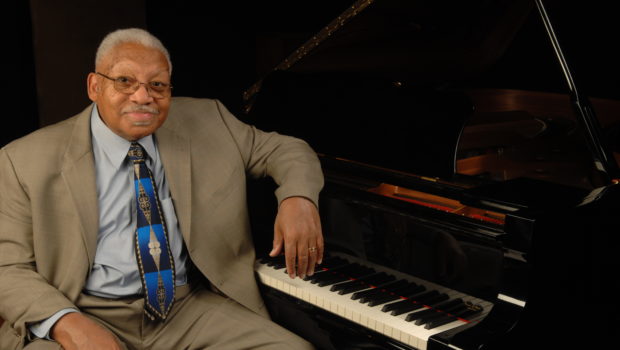


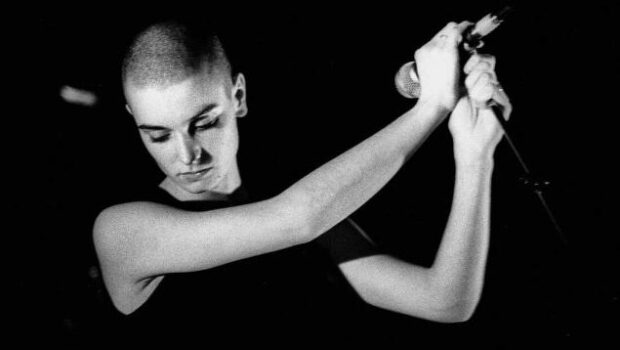
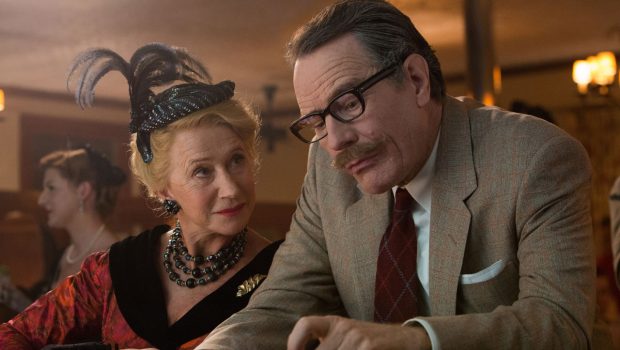

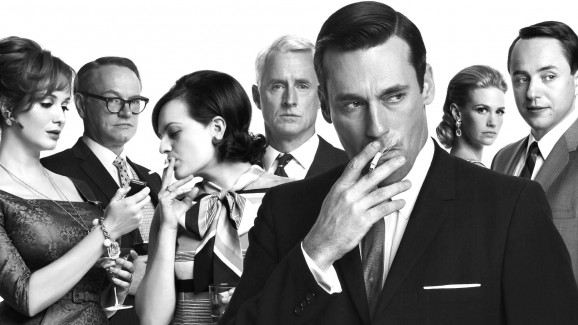
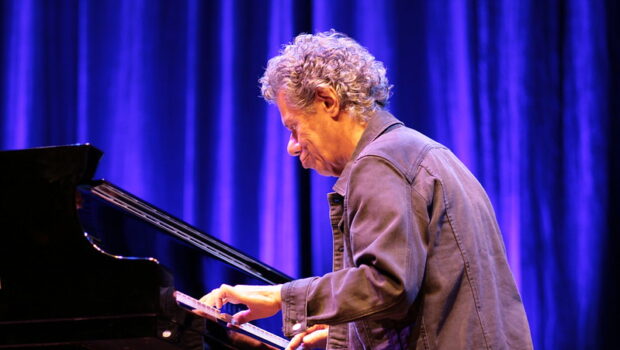
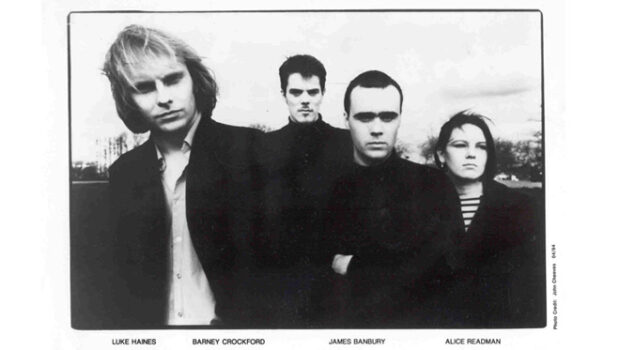
Great article on the passing of a giant, Ellis Marsalis was a keystone on New Orleans, mentor to many upcoming Jazz stars of today, rest in peace Mr Marsalis, good writing David Dorantes!